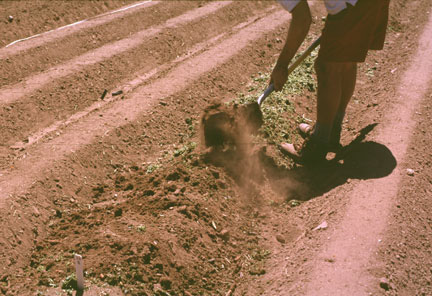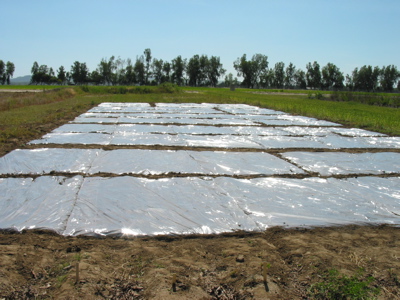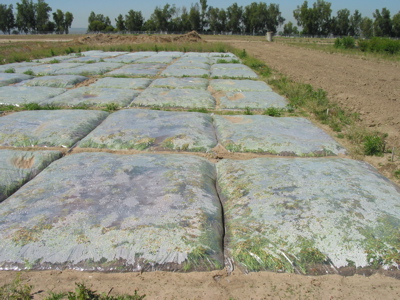
Solarization and Biofumigation:Some nematodes can be controlled successfully by soil solarization where solar radiation is sufficient. However, control of root-knot nematodes has proven difficult. Bio-fumigation has also been used for the control of soil-borne diseases, but results also appear to be variable. We have started combining soil solarization with bio-fumigation for root-knot nematode control. Initial results indicate that bio-fumigation (adding chopped broccoli to nematode infested soil) increases the efficacy of solarization. Thus, higher levels of control are achieved at lower temperatures or over shorter periods. We are currently evaluating this approach in field experiments. Relevant publications: Ploeg, A. T., and Stapleton, J. J. 2001. The effects of temperature, time, and amendment of soil with broccoli residues on the infestation of melon by two root-knot nematode species. Plant Protection Quarterly 11(3): 1-3. Ploeg, A. T. 2000. Bio-fumigation and soil heating for root-knot nematode control. CORF News 4(3):15-16. |
|
|
Field trial on the incorporation of chopped broccoli (bio-fumigation) followed by solarization for root-knot nematode control. |
|
 |
 |
| Field trial on the incorporation of chopped plant leaves and stems of broccoli, strawberries, marigolds, tomatos and carrots (bio-fumigation) followed by solarization for root-knot nematode control. | |
 |
 |
Page Created and Maintained by Scott Edwards Department of Nematology